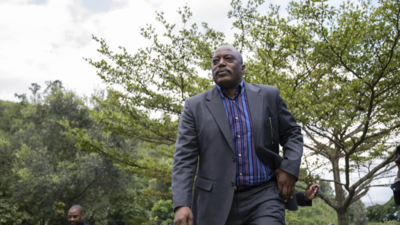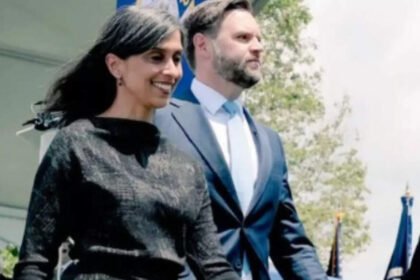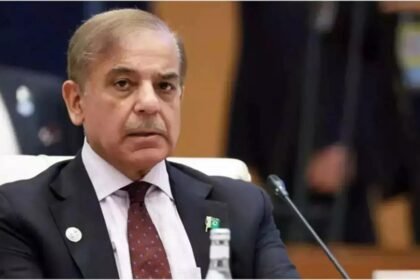Former president of the Democratic Republic of the Congo (DRC) Joseph Kabila met with religious, political and community leaders in the rebel-controlled east of the country last week.Kabila, who ruled Congo from 2001 to 2019, said he wanted to help achieve peace in the embattled region, according to one of the religious leaders.“The former president called us to express his wish to see peace return,” Joel Amurani, senior bishop and president of the Religious Denominations Platform, said after the meeting, according to the AP news agency.“We told him to play the role of referee,” Amurani added.Congolese President Felix Tshisekedi’s government accuses Kabila of supporting the M23 rebels, who control much of DRC’s eastern North Kivu province — including its capital Goma — and considers Kabila’s visit a deliberate provocation.Tshisekedi’s administration claims that Kabila’s visit legitimizes M23 and its political umbrella organization AFC (Alliance Fleuve Congo) — a coalition of armed groups and political actors that, according to the government, Kabila himself belongs to.
Kabila faces treason allegations
“Kabila is the founder and financier of the AFC,” said Christian Lumu Lukusa, a leading member of Congo’s ruling Union for Democracy and Social Progress (UDPS) party.“M23 is a terrorist organization. Kabila himself fought against them in 2013. Why should they suddenly represent the people today? We know their agenda — and are preparing accordingly.” Since Kabila’s return from self-imposed exile in April, the political situation has been tense. The Congolese Senate granted the government’s request to lift his lifetime immunity from prosecution as senator for life.Kabila now faces trial before a military court on charges of “treason, war crimes, crimes against humanity and participation in an insurrectional movement” in the country’s east, Congolese Justice Minister Constant Mutamba has said.
Between hope and suspicion
Political experts are divided. While some see Kabila’s initiative in eastern DRC as a threat to the government, Professor Nkere Ntanda of the University of Kinshasa advocates dialogue:“I don’t necessarily see his presence in Goma as a provocation. Perhaps there is genuine goodwill behind his efforts.”However, voices within the government are growing louder in condemning Kabila’s presence in the rebel stronghold as unacceptable. Meanwhile, the humanitarian situation and human rights crisis in the eastern part of the country continue to worsen — with no end to the violence in sight.Human rights organizations regularly denounce the Rwandan-backed M23 militia for committing mass murders of Congolese civilians in eastern DRC.With Rwanda’s support, M23 fighters conquered large parts of the resource-rich region and, after a lightning offensive, took Goma — a city of over 2 million at the end of January. Since then, the M23 has been preparing to rule the controlled regions for the long term.After thousands of Congolese soldiers and allied militiamen withdrew to avoid capture, M23 militias committed acts of violence against the civilian population, ostensibly to assert their authority in the troubled region.







